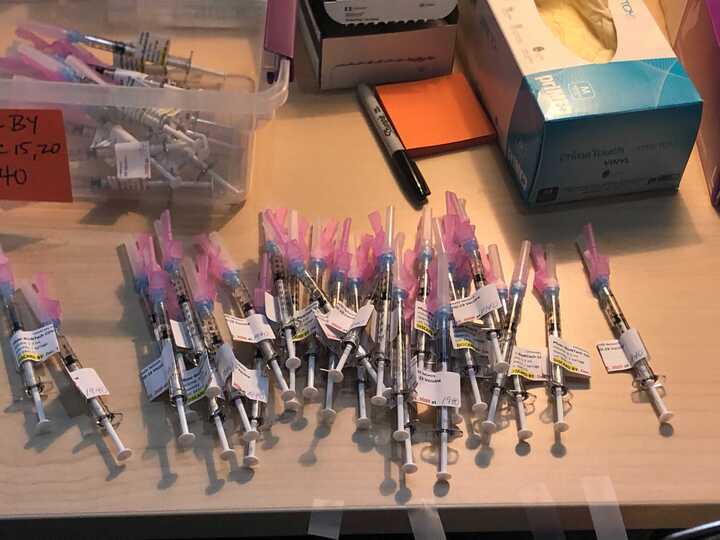Health officials in Saskatchewan administered more than 3,000 doses of the coronavirus vaccine Saturday, marking a single-day best in the battle against COVID-19.

Of the 3,232 doses, the most were given in the south east region (1,145), followed by the north central zone (766), Saskatoon (749) and Regina (453). To date, just over 20,000 doses have been administered. Data from the far north central was unavailable, according to a Saskatchewan government news release.
Vaccination clinics begin in North Battleford on Monday after 975 doses of the Pfizer vaccine were sent to city over the weekend. Long-term care residents and staff can receive the vaccine on Tuesday in North Battleford, Wilkie and Lloydminster.
The Saskatchewan government disclosed 287 new cases of COVID-19 on Sunday, bringing the provincial total to 20,272 cases. The province registered 207 new recoveries.
Excluding eight cases with pending locations, the new cases are situated in the following areas:
- Saskatoon: 94
- Regina: 37
- Far north west: 34
- Far north central: 1
- Far north east: 10
- North west: 21
- North central: 23
- North east: 33
- Central west: 3
- Central east: 9
- South west: 1
- South east: 13
Another three Saskatchewan residents died from the virus. Two deaths occurred in the 80-plus age group in the north central and Regina zones. The other death was in the 60-69 age group in the far north west zone.
- Naloxone-resistant street drug linked to 9 deaths in Eastern Canada seized in Alberta
- Buzz kill? Gen Z less interested in coffee than older Canadians, survey shows
- ‘She gets to be 10’: Ontario child’s heart donated to girl the same age
- Canada updating sperm donor screening criteria for men who have sex with men
There are 203 COVID-19 patients in hospital, including 33 people receiving intensive care.
Questions about COVID-19? Here are some things you need to know:
Symptoms can include fever, cough and difficulty breathing — very similar to a cold or flu. Some people can develop a more severe illness. People most at risk of this include older adults and people with severe chronic medical conditions like heart, lung or kidney disease. If you develop symptoms, contact public health authorities.
To prevent the virus from spreading, experts recommend frequent handwashing and coughing into your sleeve. They also recommend minimizing contact with others, staying home as much as possible and maintaining a distance of two metres from other people if you go out. In situations where you can’t keep a safe distance from others, public health officials recommend the use of a non-medical face mask or covering to prevent spreading the respiratory droplets that can carry the virus. In some provinces and municipalities across the country, masks or face coverings are now mandatory in indoor public spaces.
For full COVID-19 coverage from Global News, click here.





Comments